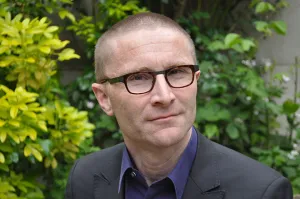
Prof. Stefan Rummens is Full Professor of Political Philosophy at the Institute of Philosophy of KU Leuven (Belgium)
Research project title:
Populism and technocracy: opposite threats to our democratic society?
Research abstract:
The hypothesis that populism and technocracy are opposite and mutually reinforcing threats to our democratic society is investigated through three more specific resesarch questions:
1/ What is technocracy? The starting point here is Jürgen Habermas’s analysis of technocracy in the context of the Keynesian welfare state. The goal is to make an update of this analysis by investigating how the rise of the neoliberal regime and the transition from government to governance have changed the nature of technocracy.
2/ Are populism and technocracy opposite threats to democracy? In previous work I have argued that populism should be seen as an attempted closure of the empty place of power (Lefort). Now, the aim is to investigate to what extent technocracy should be analysed as an attempted dissolution of the empty place of power.
3/ Is there a mutually reinforcing dynamic between populism and technocracy? The idea under investigation here is that the rise of (neoliberal) technocracy has created the social and political preconditions for the rise of populism and that, the other way around, the threat of populism only reinforces the depoliticizing tendencies of the current technocratic regime.
Events:
November 9, 2021
Lecture at the Colloquium Political Theory
-
Biografische Angaben
Prof. Stefan Rummens obtained his PhD in philosophy at KU Leuven (Belgium) in 2004 with a dissertation on Jürgen Habermas' deliberative model of democracy. He was a visiting scholar at the New School for Social Research in New York (2006) and at the Goethe University in Frankfurt am Main (2008). He was an assistant professor of political theory at Radboud University (Nijmegen, The Netherlands) before returning to KU Leuven in 2011. Apart from a side interest in the problem of free will, his work mainly concerns democratic theory with a specific focus on deliberative democracy, representation, populism and militant democracy. -
Publikationen
Stefan Rummens (2021), ‘The counterfactual structure of the consequence argument’, Erkenntnis 86 (3), 523-542. Stefan Rummens (2019), ‘Resolving the paradox of tolerance’, in Anthoula Malkopoulou and Alexander S. Kirshner (eds.), Militant Democracy and Its Critics. Populism, Parties, Extremism, Edinburgh, Edinburgh University Press, pp. 112-132. Stefan Rummens (2018), ‘Deliberation and justice’, in Andrea Bächtiger, John Dryzek, Jane Mansbridge and Mark Warren (eds.), The Oxford Handbook of Deliberative Democracy, Oxford, Oxford University Press, pp. 132-143. Stefan Rummens (2017), ‘Populism as a threat to liberal democracy’, in Cristóbal Rovira Kaltwasser, Paul Taggart, Paulina Ochoa Espejo and Pierre Ostiguy (eds.), The Oxford Handbook of Populism, Oxford, Oxford University Press, pp. 554-570.

